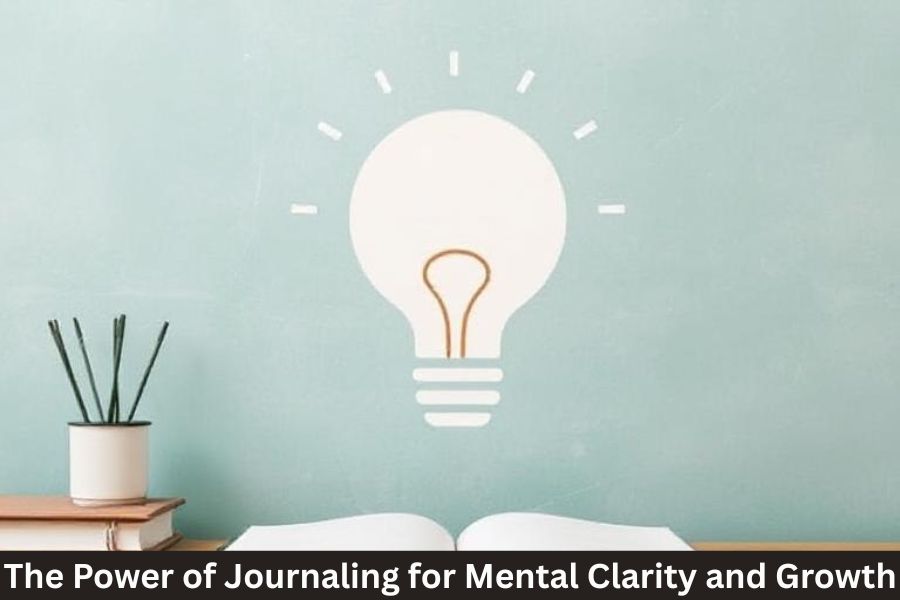Journaling doesn’t simply imply putting down what is in your head. It is an exercise of reaching into the inner depths of one’s mind to gain clarity, identify feelings, and self-nourishment. At one point in time, you may have heard journals being used for therapy: but have you ever stopped to think about how it really works and whether that ancient art can do us in our modern lives for clarity of mind and personal growth? Introduction to the transformative power of journaling and how it can change your life.
What Is Journaling?
Let’s sort out what journaling truly means before we dig further. Journaling, in its most simplistic term, means keeping a record of thoughts, experiences, or reflections on paper (or computer). But there is more. It is a space for you to process emotions, work through goals, mull over your day, or possibly dive into your subconscious.
Types of Journaling That Can Be Done:
Stream of consciousness journaling: An unstructured mode of writing, whereby thoughts flow freely.
Gratitude journaling: Focusing on being thankful.
Goal-setting journals: Writing down goals and tracking progress towards those goals.
Reflection journals: Looking back at the past to comprehend your growth.
They all offer different benefits, but each of them can bring about clarity and growth.
How Journaling Was Crafted for Clarity of Mind
1. Stress Relief
Journaling is particularly helpful during times when you feel overwhelmed. It helps cleanse your mind by writing down your worries; this makes for better concentration in the moment. Research revealed that the expression of writing was an effective remedy for reducing anxiety and stress induced by emotional upheavals.
2. Improving Emotional Intelligence
Journaling begins with you understanding your own emotions, i.e., the first step to emotional intelligence. As you talk about your emotions, you start seeing patterns and triggers. This kind of self-awareness empowers you to control these feelings better, develop healthy relationships, and maintain emotionally balanced behavior.
3. Improvement of Memory and Comprehension
When writing, you need to focus and organize your thoughts, which helps in reinforcing memory. Therefore, journals lead you towards a better understanding and retention of information, hence can be deemed an effective tool in learning and clarity of thought.
What If Journaling Promotes Self-Improvement?
1. Self-Discovery and Awareness
The more you write, the more you learn about yourself. By reflecting on your thoughts and behaviors, you begin to understand your desires, fears, strengths, and weaknesses. This self-awareness is crucial for personal growth. Journaling helps you ask the tough questions: Who am I? What do I want in life? What’s holding me back?
2. Goal Clarity
Journaling is a powerful tool for setting and achieving your goals. When you write down your aspirations, they become concrete. You’re no longer just wishing for success—you’re actively working toward it. Tracking your progress through a journal also keeps you motivated and accountable. When you see how far you’ve come, it’s a huge confidence booster.
3. Mindfulness and Reflection
Sometimes, we get so caught up in the hustle of life that we forget to pause and reflect. Journaling provides a structured way to be present. It encourages you to step back, reflect on your experiences, and process your emotions in a mindful way. This helps you make sense of life’s challenges and grow from them.
Types of Journals to Give a Try
1. Daily Reflection Journal
This is the most common type of journal where you simply reflect on your day: What went well? What challenges did you face? How did you feel? This practice helps you start to gain insight into your emotional state and behavior, which promotes growth and clarity of mind.
2. Gratitude Journal
Focusing on what you’re thankful for shifts your perspective from what you lack to what you already have. A gratitude journal helps build an optimistic mindset that leads to mental well-being.
3. Goal-Setting Journal
A goal-setting journal helps you break down your big goals into smaller, manageable tasks. By setting clear goals, writing them down, and tracking progress, you stay motivated and focused on your personal growth.
4. Creative Writing Journal
If you want to let your creative juices flow, a creative writing journal is the way to go. It encourages free-flowing expression, whether through short stories, poetry, or random musings. This practice boosts creativity and can even serve as an emotional outlet.
Starting Journaling for Clarity of Mind
1. Keep It Small
Don’t present yourself with the burden of journaling for an hour every day. Start small, even five to ten minutes per day. Write whatever comes to your mind, without much thought.
2. Create a Schedule
Consistency is the key to attaining the results that journaling has to offer. Fix a time of the day that suits you best: might be morning, so you set your intentions, or night, so you can reflect on your day.
3. Provide a Nice Setting
Set up a comfortable and quiet space to write freely. It could be a cozy corner in your room or a quiet park bench. Having a designated space will definitely help your journaling experience.
4. No Pressure on Perfection
Your journal is for your eyes only; no one else will read it. Do not concern yourself with grammar or spelling errors. The aim is just to be as honest as you can without worrying about how it will sound.
Benefits of Journaling in the Pursuit of Mental Clarity and Growth
1. Stress Relief
Journaling is an emotional outlet. You release your feelings by writing about them, which in return lessens the stress-inducing power they have over you and provides perspective.
2. Focus and Clarity
Journaling organizes your thoughts when they are disorganized. Focusing on one thought or problem at a time clears one’s mind and defines thoughts and goals.
3. Emotional Healing
It allows for journaling of the complex emotions in a safe space. Journaling accounts can free you emotionally and provide a releasing outlet helping in working through grief, anger, or sorrow and promoting an emotional recovery.
Journaling Challenges You May Encounter (And How to Get Past Them)
1. Writer’s Block
If ever you feel stuck, get some prompts or ask yourself questions like: “What am I grateful for today?” or “What’s something I’ve learned in the past week?” These questions may help get you by.
2. Consistency Problems
If journaling becomes a task, it will be difficult to keep concentring. Keep your journal entries brief or mix it up with different kinds of writing such as lists or bullet points to keep it interesting.
Conclusion
Journaling is a powerful tool for bringing clarity to your mind and growth to your life. This is much more than writing thoughts on a piece of paper; it entails understanding yourself, processing your emotions, and carving out a clear road ahead for yourself. Be it for unwinding, finding your true self, or achieving your life goals, journaling can be an ace in the hole for mental clarity and personal growth. So grab that notebook and start writing today.
FAQs
1. How does one start journaling for mental clarity?
Begin by setting aside five to ten minutes daily, during which time you write down your thoughts or reflect on your day. Do not concern yourself with correctness; just express yourself freely.
2. Can journaling help with anxiety?
Yes; anxiety is known to reduce when journaling helps you process your emotions and thoughts by providing an outlet for your feelings.
3. Should I write every day?
Writing every day would be fine, but be consistent. However, do not stretch your nerves if you miss one or two days. Focus on quality rather than quantity.
4. What should I write about in my journal?
You can write everything from what’s on your mind! You can reflect on your day, set yourself goals, express gratitude, or explore your emotions. You can use prompts if you don’t know where to begin.
5. How long should my journal entries be?
There’s no definite length. Some days could require two or three sentences, while others may wind into several pages. Just go with whatever feels right for you.




